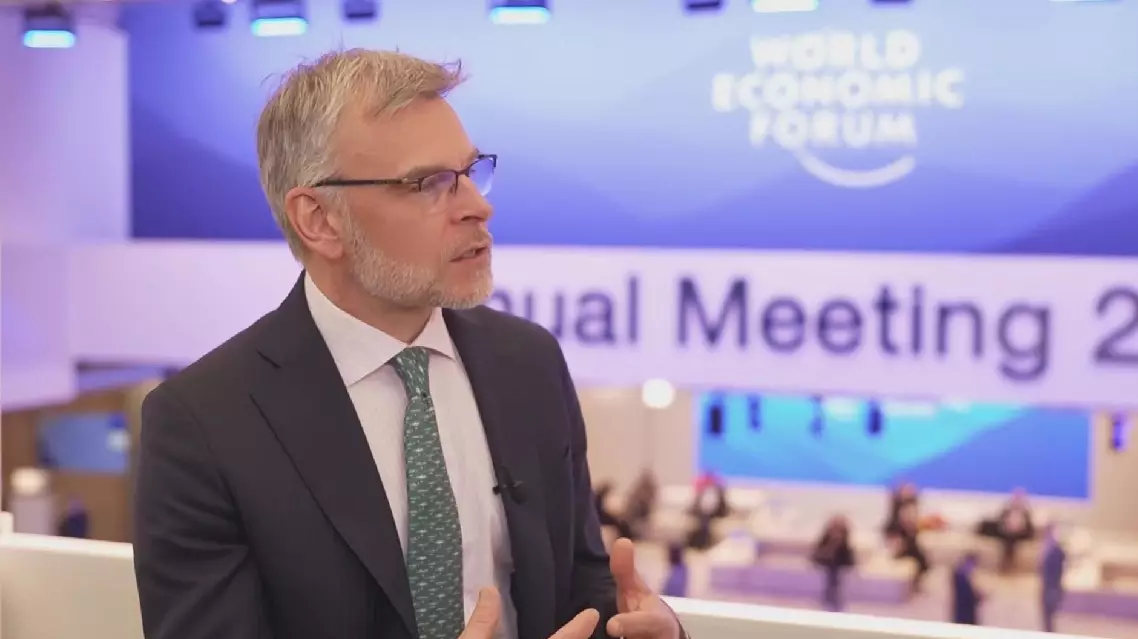The world stands at a key moment where rapidly evolving technologies can be harnessed to bring huge benefits to society across multiple fields, while China is also playing an important role in the new intelligent age due to the rapid development of its sci-tech sector, according to Olivier Schwab, managing director of the World Economic Forum (WEF).
Schwab was speaking in an interview on the sidelines of the ongoing 2025 WEF Annual Meeting, which opened in Davos, Switzerland on Monday, gathering nearly 3,000 participants from various regions and industries, with a call for greater cooperation amid the current global uncertainty.
With the five-day meeting themed "Collaboration for the Intelligent Age," much attention at Davos is being placed on how new technologies are impacting our world, and Schwab said that properly exploiting these advancements is key to fostering social and economic development in the new era.
"We are at a moment in time where you have a convergence of a number of technologies which are advancing very rapidly, from synthetic biology, sensors, quantum computing, underpinned by [the] exponential capabilities of artificial intelligence. So all this presents tremendous opportunities for society -- think of cancer research, think of climate solutions, think of solutions for the energy transition," Schwab said an interview with SMG International, a leading media group in Shanghai.
Chinese Vice Premier Ding Xuexiang delivered a speech at Davos on Tuesday during which he said the world should seize the opportunity to enhance connectivity in the digital age, and ensure that sci-tech achievements can be harnessed for the benefit of all humanity, enabling more countries to get on board the "fast train" of digital economic development.
Schwab underscored how China is at the forefront of this new age of intelligence, citing the country's advanced tech industries and its efforts to ensure greater global governance of AI as a major contribution to the world.
"China has an important role to play when it comes to the advancement of technologies. And by the way, it's leading in a number of technologies. I think we will hear about further developments in technology from China and how this can contribute to the rest of the world," he said.

Rapid sci-tech advances present tremendous opportunities for society: WEF official
The Iranian government is focusing on public concerns and maintaining stable supplies of essential goods amid recent protests, Iranian President Masoud Pezeshkian said in a televised interview on Sunday.
In the city of Karaj, northwest of the capital Tehran, daily life has largely continued as normal. A video filmed by a local resident on Sunday shows food stores open and grocery shelves fully stocked.
"This is the block near my home, and there are some food stores here. Daily life continues here. Last night we did not see many protests in Karaj. Right now the city is very safe. This is a grocery store close to my home. All the food is available; nothing is in shortage. Here are noodles and different types of beans. Here are dairy products, cheese, and yogurt. I also checked other grocery stores and didn't see any shortages. Everything is available," said local resident Ali Reza.
Iranian officials have described recent disturbances as acts orchestrated by the "enemy," including some carried out by well-trained and armed "terrorists." The incidents have caused casualties among security personnel and civilians, as well as property damage.
The Secretary of Iran's Supreme National Security Council Ali Larijani has directed authorities to severely punish the "terrorists."
Meanwhile, Iran's police chief Ahmad-Reza Radan said on Sunday that the police had raised alert levels and arrested several leaders of the troublemakers during the operations on Saturday.
President Pezeshkian noted in the interview that the normal demands of the Iranian people are reasonable and justified, but they must realize that triggering riots and carrying out terrorist acts are the enemy's attempts to undermine the country. He urged the public to remain vigilant.
Also on Sunday, Iranian Parliament Speaker Mohammad Baqer Qalibaf warned that Tehran would regard U.S. and Israeli bases and facilities in the Middle East as "legitimate targets" if Washington takes military action against Iran. His remarks followed media reports saying U.S. President Donald Trump is "seriously considering authorizing a strike" against Iran.
Iranian state media reported that at least 109 members of Iran's security forces have been killed in clashes since the protests began 14 days ago. Meanwhile, human rights groups based outside the country said the number of protesters killed has exceeded 200, though the figure could not be independently verified.
The protests initially erupted over a sharp depreciation of the rial and sweeping subsidy reforms. Iranian authorities have blamed the unrest on foreign-linked agents and sanctions imposed by the United States.

Iranian president says government focusing on ensuring supplies amid protests










